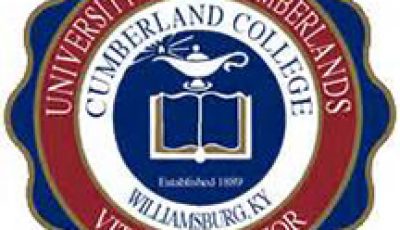Confirmation bias is real problem with misinformation
“The survey found that 79 percent of Republicans and 73 percent of Democrats believe social media companies are responsible for the spread of misinformation,” states an article from the Associated Press, published by LEX18 on Oct. 8.
The data reportedly came from a poll from The Pearson Institute and The Associated Press-NORC Center for Public Affairs Research.
Contrary to the claim that social media companies are to blame, social media is not the problem when it comes to misinformation.
The real problem is much more severe and much harder to correct.
The problem is our personal biases which are reflected in our social media feeds.
Before I start my explanation, I want to go ahead and be upfront about some of my biases that will be evident in, and have influenced, the perspective of this column.
For me, it is important for me to state my biases since one way to combat misinformation is for consumers to understand the inherent biases any author – whether from a professional publication or on social media – has which may influence their content or perspective.
First, I am in my early 20s, which means that I don’t remember a world without technology. For most of my teenage years and all of my adult life, social media has been intertwined in my social life and interactions and it has even played major roles in my education and career.
Second, I run both the Twitter and Instagram platforms for this newspaper, as well as post many of the stories you see on our Facebook page.
Now that you have an idea of where I am coming from, let me explain why social media isn’t society’s major problem when it comes to misinformation.
Yes, social media is a platform for both hate and misinformation, but what about national magazines and newspapers that have obvious political biases? What about print and television programs that specifically and intentionally sensationalize stories because they know that by doing so, you will pick up the product or tune into the show regardless of whether the information presented is true?
Yes, I admit that social media is a platform where hate and misinformation get exacerbated, but the platforms themselves are not the problem.
The problem is the confirmation bias, innate within humans, that is revealed through social media algorithms.
In my publisher’s column last week, he cited several credible sources and facts about social media. I don’t deny the validity of those sources and facts, but those facts and sources only tell one side of the story.
One source referenced in last week’s column was Frances Haugen, a former Facebook employee who appeared on “60 Minutes” in an interview as the woman who anonymously filed complaints that claim Facebook’s own research shows how it magnifies hate and misinformation.
One example used in the column to demonstrate this concept was, “If you strongly refer to articles by one political party, then you will be bombarded by news from that party that will keep your interest at a peak level.”
The column correctly notes that the algorithms determine what appears in a users’ feed.
The algorithms in most social media sites are designed so that it pulls similar content to posts you have viewed. The idea is that if the sites show you posts similar to content you have already interacted with, then you will be more likely to interact with the new content and thus will continue using the site.
The algorithms collect data about what a user inputs to produce its outputs.
For example, if a person searches for makeup tutorials then there is a high chance that advertisements, sponsored posts by makeup artists, and other content related to makeup will start appearing in that person’s social media feeds. The user inputs a search for makeup tutorials and so the algorithm outputs data about makeup.
Basically, sites will show you stuff that looks like what you have already viewed, so the solution to getting different viewpoints or content is to start searching for different viewpoints and content.
Humans have an internal ‘algorithm’ or inclination to seek out confirmation bias sources, so just like social media sites, our brains look for content or ideas that are similar to ones we already believe.
This confirmation bias isn’t limited to social media.
According to a study by Pew Research on political polarization and media habits published on Oct. 20, 2014, individuals who identify consistently as ‘liberals’ name CNN, MSNBC, NPR and NYT as their main news sources. Those individuals are more likely to defriend someone on social networking sites because of politics, and in 2014, they were more likely to trust than distrust 28 of the 36 news sources Pew Research specifically used in the study.
In contrast, according to the same 2014 study published by Pew Research, individuals who consistently identified as ‘conservatives’ were more likely to name Fox News as their main news source. They were more likely to, “hear political opinions similar to their own on Facebook,” and they reportedly distrust more than trust 24 of the 36 news sources used in the Pew Research study.
Now, this study is dated. At this point, it is almost 7 years old, so the data has most likely changed somewhat.
More recent data from Pew Research, published on Aug. 30, 2021, indicates a wider partisan gap emerging when it comes to trust of national and local news organizations and social media.
The data from the 2021 study states, 78 percent of individuals who identify as democrats, or hold beliefs that lean more towards democrat ideology, have a lot or some trust in information from national news organizations.
In contrast, only 35 percent of individuals who identify as republicans, or hold beliefs that lean more towards republican ideology, have a lot or some trust in information from national news organizations.
For local news organizations, the numbers indicating a lot or some trust in the outlets are 84 percent for democrats or democrat leaning and 66 percent for republican or republican leaning.
As for social media, Pew Research’s 2021 study shows fairly low percentages of trust from both major political sides. The data shows only 34 percent of democrat, or democrat leaning, individuals have a lot or some trust for information from social media whereas only 19 percent of republicans, or republican leaning, individuals indicated a lot or some trust in information from social media.
Basically, different studies and their data, from Pew Research, have shown that political ideology can be used as an indicator of trust in media outlets as a whole and on an individual outlet basis. There are always outliers and exceptions to data, but generally speaking it can be used to evaluate overall trends.
In relation to social media, political ideology and trust in specific media outlets, such as CNN for left leaning individuals and Fox News for right leaning individuals, influences the organizations, pages, and people users follow on social media.
Therefore, if the organizations, pages, and people a user follows all have similar political beliefs, posts indicative of those beliefs will more frequently populate that users feed.
My opinion, based on the data from Pew Research, is that confirmation bias is reflected in the algorithms used by social media sites.
Social media sites aren’t the problems, confirmation bias is.
Unless individuals seek opinions outside of their personal, political and social viewpoints, any media, whether it is electronic or print, consumed by the person has the potential to only be within the range of a person’s confirmation bias.
The News Journal, like many local news outlets, works diligently to keep our coverage and articles unbiased. Our job here at the News Journal is to serve as a watchdog for our community.
Our publisher said it best, “We want to keep you informed about what is going on at city hall, the school board, local elections, and the many other things that affect your life.”
Our newspaper, like many, publishes opinion pieces, but those are the opinions of that writer and do not necessarily reflect the opinions of the paper as a whole. They certainly are not indicative of community consensus or beliefs.
News articles published in the News Journal are factual and as unbiased as we are able to report them.
As community members, you can trust us as a local source for information – both in print and on our online platforms – including our social media.
Social media is not the problem, confirmation bias is.
Follow a variety of sources and fact check them.
Don’t be pigeonholed into thinking you should only view and believe certain ideology.
Trust our newspaper, but verify on your own the information we publish in all of our formats.
If you do so enough, you will see how much work we put into our news coverage, and I’d even go so far as to say, you will trust, even more, the information we publish.








